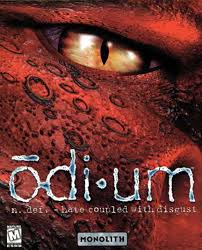
记忆方法
将“odium”分解为“o”和“dium”,想象这是一个“臭”(o-dium)或令人厌恶的东西。这个“臭”可以被解释为强烈的负面情感,与“odium”作为厌恶、憎恨的意思相呼应。通过这样的联想记忆,可以帮助记住单词的含义。
以上内容由AI生成, 仅供参考和借鉴
中文词源
odium 憎恶,厌恶
来自拉丁语odi,憎恶,厌恶,来自PIE*od,厌恶,憎恶,词源同annoy,noisome.可能来自PIE*od,气味,臭味,词源同odor.
英语词源
- odium (n.)
- c. 1600, "fact of being hated," from Latin odium "ill-will, hatred, grudge, animosity; offense, offensive conduct," related to odi "I hate" (infinitive odisse), from PIE root *od- "to hate" (cognates: Armenian ateam "I hate," Old Norse atall, Old English atol "dire, horrid, loathsome"). Meaning "hatred, detestation" is from 1650s. Often in an extended form, such as odium theologicum "hatred which is proverbially characteristic of theological disputes" (1670s).
权威例句
- 1. Her manner acquired her universal odium.
- 她的举止遭到普遍的非议.
- 2. The complainant has been exposed to public odium, scandal and contempt.
- 原告遭到了公众的憎恨、非议与蔑视。
- 3. He incurred the odium of everyone by sacking the old caretaker.
- 他因解雇老管理员而激起公愤.
- 4. Hitler had the odium of wrecking Europe.
- 希特勒受到毁坏之欧洲的责难.